第10章 CHAPTER III(1)
THE MANSE IN THE BUSH
Straight north from the St. Lawrence runs the road through the Indian Lands. At first its way lies through open country, from which the forest has been driven far back to the horizon on either side, for along the great river these many years villages have clustered, with open fields about them stretching far away. But when once the road leaves the Front, with its towns and villages and open fields, and passes beyond Martintown and over the North Branch, it reaches a country where the forest is more a feature of the landscape. And when some dozen or more of the crossroads marking the concessions which lead off to east and west have been passed, the road seems to strike into a different world. The forest loses its conquered appearance, and dominates everything.
There is forest everywhere. It lines up close and thick along the road, and here and there quite overshadows it. It crowds in upon the little farms and shuts them off from one another and from the world outside, and peers in through the little windows of the log houses looking so small and lonely, but so beautiful in their forest frames. At the nineteenth cross-road the forest gives ground a little, for here the road runs right past the new brick church, which is almost finished, and which will be opened in a few weeks. Beyond the cross, the road leads along the glebe, and about a quarter of a mile beyond the corner there opens upon it the big, heavy gate that the members of the Rev. Alexander Murray's congregation must swing when they wish to visit the manse. The opening of this gate, made of upright poles held by auger-holes in a frame of bigger poles, was almost too great a task for the minister's seven-year-old son Hughie, who always rode down, standing on the hind axle of the buggy, to open it for his father.
It was a great relief to him when Long John Cameron, who had the knack of doing things for people's comfort, brought his ax and big auger one day and made a kind of cradle on the projecting end of the top bar, which he then weighted with heavy stones, so that the gate, when once the pin was pulled out of the post, would swing back itself with Hughie straddled on the top of it.
It was his favorite post of observation when waiting for his mother to come home from one of her many meetings. And on this particular March evening he had been waiting long and impatiently.
Suddenly he shouted: "Horo, mamma! Horo!" He had caught sight of the little black pony away up at the church hill, and had become so wildly excited that he was now standing on the top bar frantically waving his Scotch bonnet by the tails. Down the slope came the pony on the gallop, for she knew well that soon Lambert would have her saddle off, and that her nose would be deep into bran mash within five minutes more. But her rider sat her firmly and brought her down to a gentle trot by the time the gate was reached.
"Horo, mamma!" shouted Hughie, clambering down to open the gate.
"Well, my darling! have you been a good boy all afternoon?""Huh-huh! Guess who's come back from the shanties!""I'm sure I can't guess. Who is it?" It was a very bright and very sweet face, with large, serious, gray-brown eyes that looked down on the little boy.
"Guess, mamma!"
"Why, who can it be? Big Mack?"
"No!" Hughie danced delightedly. "Try again. He's not big.""I am sure I can never guess. Whoa, Pony!" Pony was most unwilling to get in close enough to the gate-post to let Hughie spring on behind his mother.
"You'll have to be quick, Hughie, when I get near again. There now! Whoa, Pony! Take care, child!"Hughie had sprung clean off the post, and lighting on Pony's back just behind the saddle, had clutched his mother round the waist, while the pony started off full gallop for the stable.
"Now, mother, who is it?" insisted Hughie, as Lambert, the French-Canadian man-of-all-work, lifted him from his place.
"You'll have to tell me, Hughie!"
"Ranald!"
"Ranald?"
"Yes, Ranald and his father, Macdonald Dubh, and he's hurted awful bad, and--""Hurt, Hughie," interposed the mother, gently.
"Huh-huh! Ranald said he was hurted."
"Hurt, you mean, Hughie. Who was hurt? Ranald?""No; his father was hurted--hurt--awful bad. He was lying down in the sleigh, and Yankee Jim--""Mr. Latham, you mean, Hughie."
"Huh-huh," went on Hughie, breathlessly, "and Yankee--Mr. Latham asked if the minister was home, and I said 'No,' and then they went away.""What was the matter? Did you see them, Lambert?""Oui" ("Way," Lambert pronounced it), "but dey not tell me what he's hurt."The minister's wife went toward the house, with a shadow on her face. She shared with her husband his people's sorrows. She knew even better than he the life-history of every family in the congregation. Macdonald Dubh had long been classed among the wild and careless in the community, and it weighed upon her heart that his life might be in danger.
"I shall see him to-morrow," she said to herself.
For a few moments she stood on the doorstep looking at the glow in the sky over the dark forest, which on the west side came quite up to the house and barn.
"Look, Hughie, at the beautiful tints in the clouds, and see the dark shadows pointing out toward us from the bush." Hughie glanced a moment.